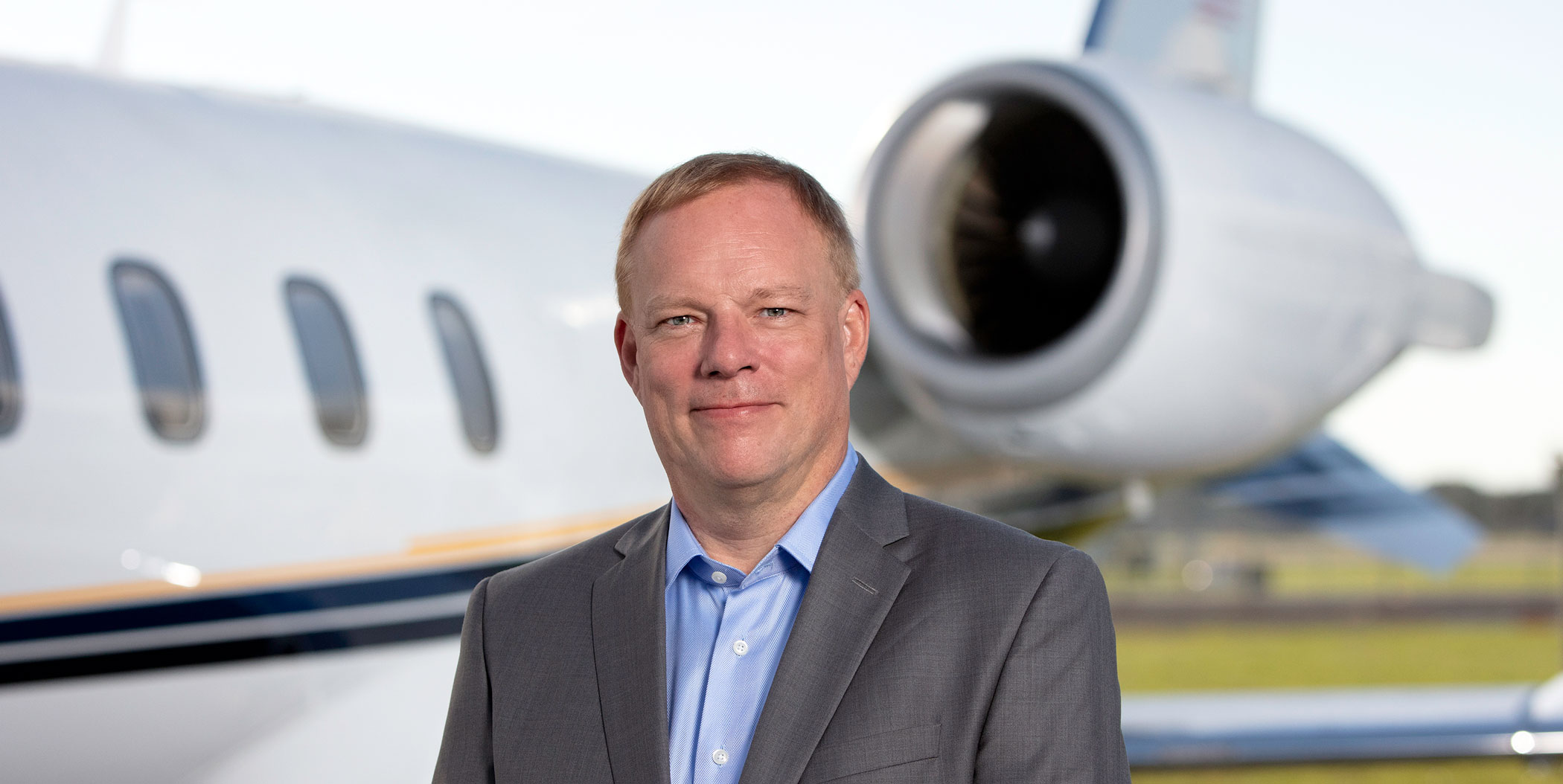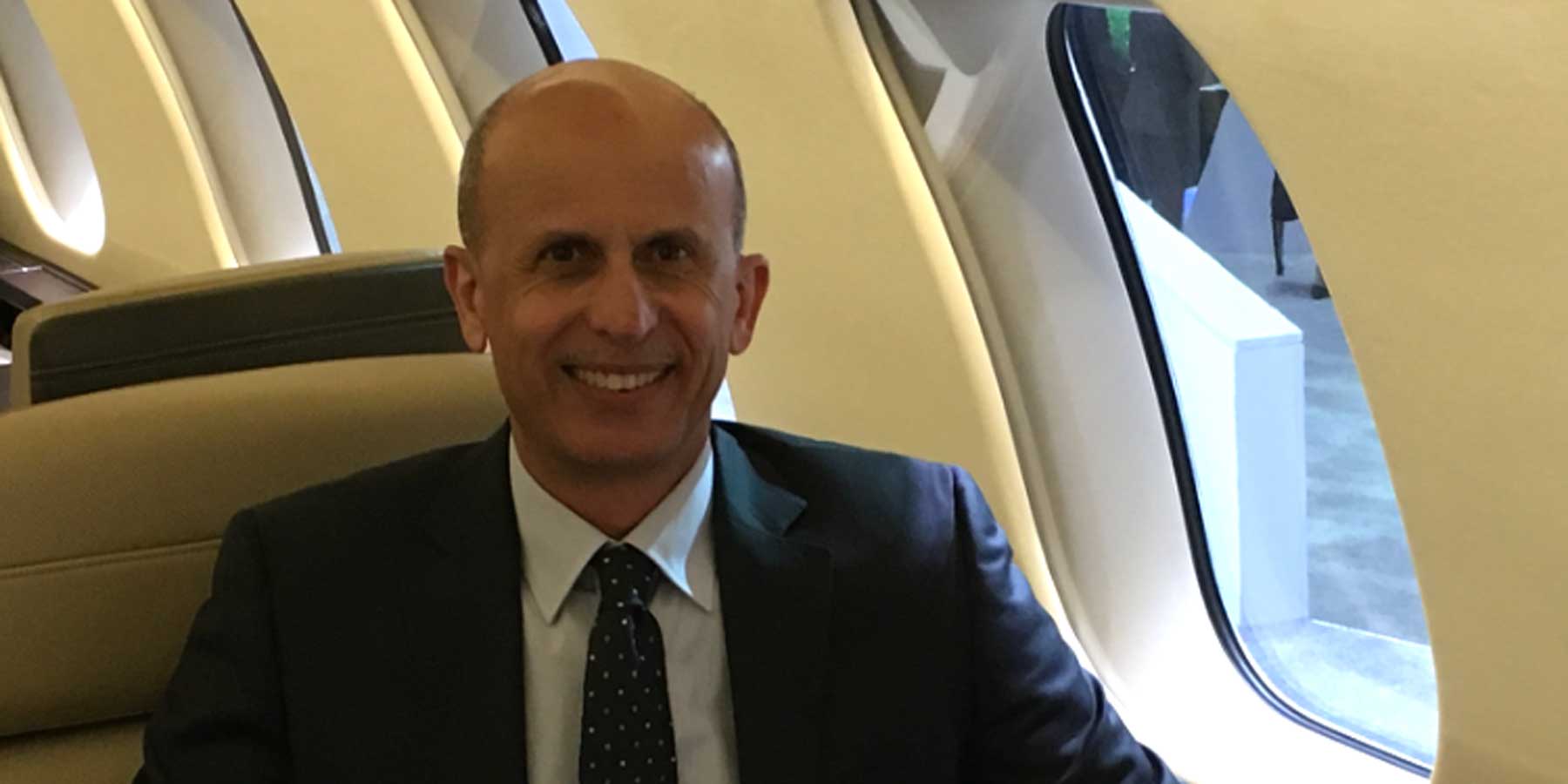Click Here to View This Page on Production Frontend
Click Here to Export Node Content
Click Here to View Printer-Friendly Version (Raw Backend)
Note: front-end display has links to styled print versions.
Content Node ID: 404220
With extremely large cabin sizes a traditional feature of the Middle East business jet market, AIN sought to canvass opinion on whether there has been a regional downsizing of aircraft types due to the Covid-19 pandemic. Traditional Royal Family and government delegations have tended in the past to travel in size, giving rise to the phenomenon dubbed "the royal barge bizliners."
While the pandemic has placed more emphasis on "travel" than the "travel in style" to which top-notch delegations subscribe, there does seem to be evidence that it will take more than a pandemic to unseat VIP-configured airliners in favor of long-range traditional business jets.
Simon Davies—the sales director for the UK, Middle East, Africa, Turkey, India, and Eastern Canada at Global Jet Capital—said the vast majority of business aircraft in the region were what might be referred to as traditional business aircraft.

“While many large bizliners are in the Middle East, most of those acquisitions were related to government or ruling family needs, and these aircraft are not acquired annually,” he said. “It is challenging to state whether there has been any meaningful shift by these entities to smaller aircraft types.
“We observed some interest by some of these entities to add more traditional business aircraft to their fleet. However, this was not always at the expense of the larger aircraft type already in their fleet. Given the size of the traveling entourages for government or ruling family members, there will always be a requirement for bizliners in the region.”
Jeffrey Emmenis, a partner at Vertis Aviation in Switzerland, chose to reference the debate by looking at the market in Africa, as well as the Middle East. “There has been a seismic shift,” he said. “We founded the business around the Boeing BBJs and Airbus ACJs.
“We are seeing more customers in the Middle East and Africa using those aircraft, but on official head-of-state business trips and government and diplomatic missions, because the airline industry is absolutely obliterated within Africa. It was never well connected anyway, but driven by Ethiopia and Kenya Airways, and now effectively, South African Airways. We’ve now seen a shift with those guys, where they would prefer smaller budgets and traditional business aircraft over executive airliners."
“Recent times have seen fewer VVIPs in the region flying, in general,” said Mohammed Husary, the co-owner, founder, and executive president of UAS International Trip Support. “Our clients have exacting standards when it comes to comfort, and I don’t see them compromising.”

Hamish Harding, chairman of Action Aviation in Dubai, believes the biggest business aircraft categories are making way for smarter ones. “We are indeed seeing that,” he said. “We do see some of the bizliners being sold now in the region and less demand for the really big aircraft. Obviously, Saudi was the heart of all that. The whole region seems to be less interested in the very big business jets. There is more demand for the Gulfstreams of this world, or the Globals, Challengers, and Legacys.”
In the charter market, the argument can be more a question of long-range, super-large, large, or super-midsize business jets.

Sameer Hdairis, accountable manager for Arab Wings in Amman, Jordan, said he had not seen aircraft size being affected by Covid. “I have not seen any downsizing. We have definitely noticed an increase in charter flight demand due to the problems the airlines are experiencing. I have seen, let’s say, newcomers who used to travel business class, or first class, who have started seeing the need to acquire aircraft or to use aircraft charter.
“I have noticed certain businessmen buying preowned aircraft because of the lack of commercial flights to meet their needs. Arab Wings has added two aircraft in the past year. I think there will be more demand for preowned aircraft.”
Hdairis had seen aircraft valuation metrics diverge. “There are two outcomes concerning this. On the one hand, for owners of the most expensive aircraft, if their business or industry was negatively affected, they sold their aircraft, and prices fell significantly," he said. "On the other hand, I noticed that Challenger 604s, Legacy 600s, and 650s maintained their value, and in some cases these increased because of demand.”
Mark Hardman, CEO of RightJet in Dubai, noted that the selection of aircraft charter type was more price-conscious under Covid. “The market is presently super-price-driven. It depends on the profile of the client as to whether they’re looking at a small, medium, or large jet, or a bizliner," he said.
"We are seeing travel for leisure and business, but…with the exception of certain routes such as Dubai, Seychelles, Turkey, and the Maldives, pleasure travel is not a pleasure at the moment. Most people are traveling for a compelling reason.”
When it comes to royals and government delegations, Hardman questions whether they are traveling at full capacity at the moment. While he thinks not, some activity is being seen.
“How price-sensitive is the charter market? There’s quite a lot of new market entrants, who were used to traveling business or first," he said. "If you’re traveling with a group of people [and considering a business jet], you’ll probably not be too surprised at the price of chartering a jet. However, if it is just one passenger then the price is considerably more than first class.”
People on the commercial side were used to shopping around. “We’ve seen quite a lot of this, where many brokers have been contacted and where there are parties are working on the same trip,” he said. “This is fine, but it is not very efficient and usually does not lead to better pricing. I believe the market, within certain sectors, is buoyant, but still very much price-driven.”
Asked if bizliners had been edged out on size and price considerations in the last 12 months, Paras Dhamecha, managing director of Empire Aviation Group (EAG) in Dubai, said: “No, the larger aircraft have not necessarily disappeared. The smallest aircraft in our fleet is the Hawker 900XP and our charter fleet goes from the Legacy to the Global, and the [Gulfstream] G650.”
From time to time, EAG still gets requests for the larger bizliners but many countries are currently closed. “Is anything going to change when things open up? I don’t really think so,” he said.
“People are still going to jump in those airplanes and go where they need to go. We have seen no issue, in terms of people looking at price when they know what they want to do with these airplanes, which serve a very regular clientele that spends a lot of money flying around the world.”